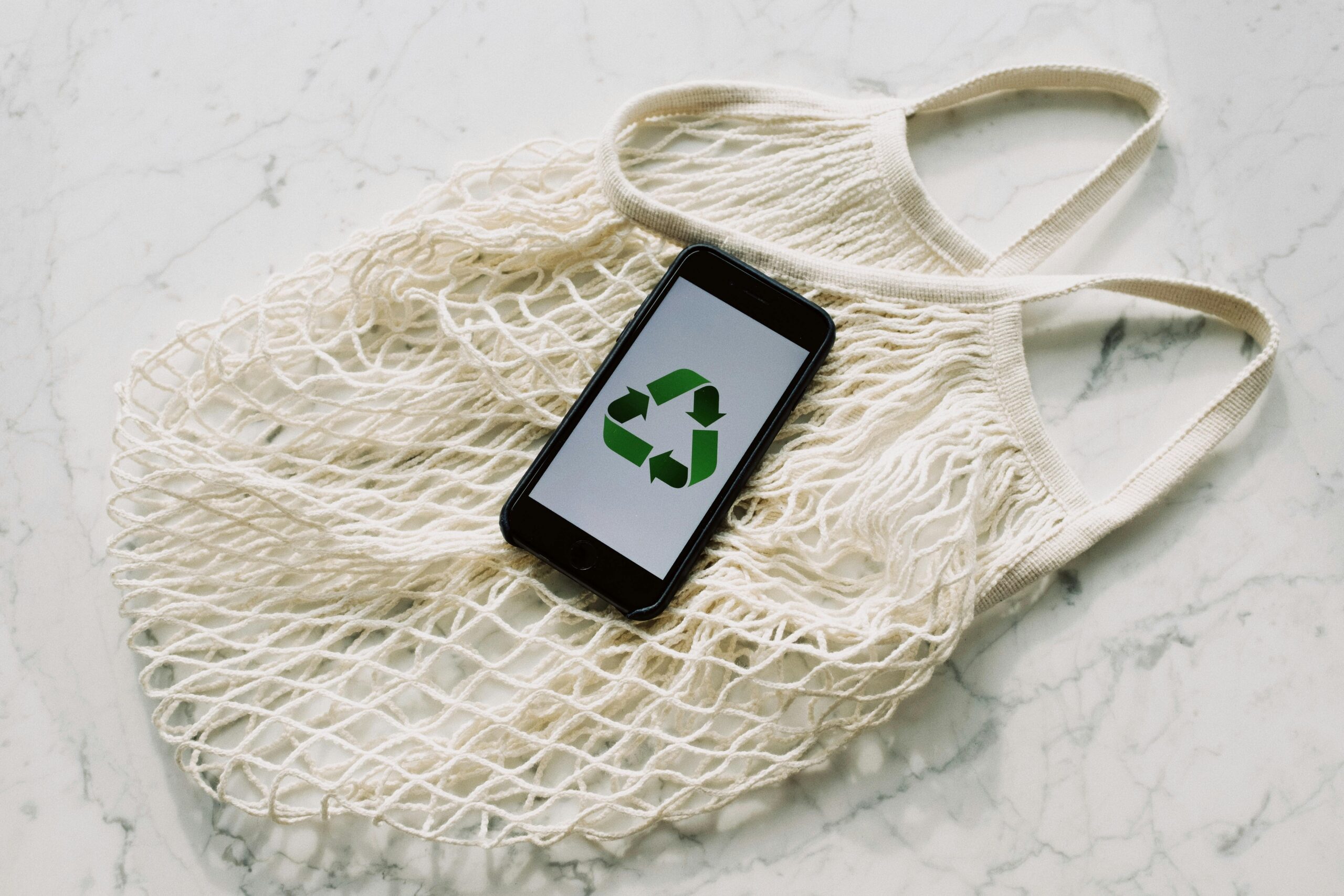How Living More Eco-Friendly Can Help You Save Money

In today’s world, sustainability and financial well-being often go hand in hand. By adopting eco-friendly practices, you not only contribute to the health of our planet but also benefit from significant savings in your day-to-day life. Living more sustainably doesn’t have to be expensive or complicated; in fact, it can be a simple and effective way to save money while doing your part for the environment. Here’s how:
Reduce Energy Consumption
Lower Utility Bills
One of the easiest ways to save money and live more sustainably is by reducing your energy consumption. Simple changes, like switching to energy-efficient light bulbs (such as LED bulbs), can cut your electricity bill. LED bulbs use up to 75% less energy than traditional incandescent bulbs and can last up to 25 times longer, reducing the frequency and cost of replacements.
Invest in a Programmable Thermostat
Installing a programmable thermostat allows you to control your home’s temperature more efficiently, leading to lower heating and cooling costs. By setting your thermostat to adjust the temperature when you’re not home or while you’re sleeping, you can significantly reduce your energy usage without sacrificing comfort.

Embrace a Zero-Waste Lifestyle
Save on Groceries with Bulk Buying
Purchasing groceries in bulk not only reduces the amount of packaging waste but also saves you money. Many stores offer discounts on bulk items, and you’ll likely buy only what you need, reducing food waste. Bring your reusable containers to the store to avoid using single-use plastic bags.
Use Reusable Kitchen Towels
Instead of reaching for disposable paper towels, switch to reusable kitchen towels or cloths. These can be washed and reused multiple times, reducing waste and saving money over time. A one-time investment in high-quality, absorbent cloth towels can replace hundreds of rolls of paper towels each year, leading to significant savings.
Switch to Reusable Water Bottles and Coffee Cups
Investing in a durable stainless steel or glass water bottle can save you money and reduce plastic waste. Instead of buying bottled water, refill your reusable bottle throughout the day. Similarly, bringing a reusable coffee cup to your local café can often earn you a small discount, and you’ll reduce the waste from disposable cups. Over time, these small changes can add up to big savings.
Try Reusable Shopping Bags and Produce Bags
Using reusable shopping bags not only reduces the need for plastic bags but can also save you money. Some stores offer discounts for bringing your own bags, and many places now charge for single-use plastic bags. Additionally, investing in reusable produce bags can reduce the need for the flimsy plastic bags often used for fruits and vegetables.

Cut Down on Water Usage
Install Water-Saving Fixtures
Installing low-flow showerheads, faucets, and toilets can drastically reduce your water consumption, leading to lower water bills. For instance, a low-flow showerhead can save a family of four around 2,700 gallons of water per year, which translates to lower utility costs.
Fix Leaks Promptly
A dripping faucet or leaky toilet can waste a significant amount of water over time. Fixing leaks as soon as they occur can prevent water waste and save you money on your water bill. A single dripping tap can waste more than 3,000 gallons of water per year, costing you more than you might think.

Opt for Sustainable Transportation
Walk, Bike, or Use Public Transport
Reducing your reliance on a personal vehicle not only lowers your carbon footprint but also saves you money on fuel, maintenance, and insurance. Walking or biking for short trips is a great way to stay healthy and save money. If you live in an area with good public transport, consider using it for your daily commute instead of driving. Public transportation is often cheaper and can reduce the wear and tear on your car, extending its lifespan.
Consider Carpooling
Carpooling with coworkers or friends is another eco-friendly way to save money. By sharing rides, you can split fuel costs, reduce vehicle wear, and decrease your overall transportation expenses.
Practice Mindful Consumption
Buy Less, Choose Better
When you focus on quality over quantity, you tend to buy fewer items that last longer, saving you money in the long run. This approach applies to everything from clothing to household goods. For example, investing in a high-quality, energy-efficient appliance may cost more upfront, but the savings on energy bills and the extended lifespan of the product will more than make up for the initial investment.
DIY and Repair
Instead of immediately replacing broken items, try repairing them. There are countless resources available online to help you fix everything from clothing to electronics. Additionally, learning to make your own cleaning products or grow your own vegetables can save money and reduce your environmental impact. For instance, making your own multi-purpose cleaner using ingredients like vinegar and baking soda is not only cost-effective but also free from harsh chemicals.

Reduce Waste and Recycle
Compost at Home
Composting organic waste like food scraps and yard trimmings reduces the amount of waste sent to landfills and creates nutrient-rich soil for gardening. This can save you money on gardening supplies while contributing to a healthier environment.
Recycle and Reuse
By recycling and reusing materials, you can reduce the need to buy new products. For example, glass jars can be repurposed for storage, and old clothing can be turned into cleaning rags. These practices reduce waste and save money on purchasing new items.
Conclusion
Living a more eco-friendly lifestyle is not only beneficial for the environment but can also lead to significant financial savings. By making small, sustainable changes, you can reduce your energy and water bills, cut down on waste, and make more mindful purchasing decisions. Start with a few of these tips, and you’ll soon see that living green and saving money can go hand in hand.
Embracing a more sustainable lifestyle doesn’t have to be overwhelming or costly. In fact, as you incorporate more eco-friendly practices into your life, you’ll likely find that you’re saving money and living a healthier, more fulfilling life. Whether it’s switching to reusable products, cutting down on energy consumption, or embracing a zero-waste lifestyle, every small step you take towards sustainability can make a big difference for both your wallet and the planet.
I need to be better with being more eco-friendly. We still buy bulk plastic water bottles at Costco and while I think they are great for events or occasions when different people attend, I think a reusable bottle for water is more efficient and eco-friendly for individuals. I do bring a reusable nylon bag when I grocery shop though!
Maureen | http://www.littlemisscasual.com
great article! i knew we can be frugal while being mindful of the environment but you offered examples that hadn’t crossed my mind. if we all practised mindful consumption we could save a lot while being eco friendly.
Thank you so much for this! I’ve been trying to be more eco-friendly, but knowing where to start and how to do it without falling into the trap of buying expensive things I don’t need has been difficult.
In these difficult times we all need to try and budget and find ways to save money. These tips are very useful.
I would love to save money and support our planet. We already use a programmable thermostat and love it. Thank you for the useful tips.
These are great points about eco-friendly habits! Reusable water bottles are indeed a more sustainable choice for individuals compared to bulk plastic bottles. It’s also encouraging to see that small steps like using reusable grocery bags make a difference. Being mindful of our consumption can help us save money while protecting the environment. Thanks for sharing these insights!
It’s amazing how living more eco-friendly not only helps the planet but also saves money. It’s such a win-win, and you’ve made it feel so achievable with these simple tips!
Excellent ideas for living a more eco-friendly life, and how it saves money. It’s hard to do, especially in our fast-paced two-income families! Thanks for the inspiration and guide!
Those are some great points to keep in mind and what a wonderful and informative guide especially to those who are new to living an eco-friendly life. I always bring extra bags for groceries and lessen my plastic waste.
Being eco-friendly surely helps as we are doing now because we love the lifestyle but also helps to save the bank. We are doing these practices.
We have a plentiful supply of reusable kitchen towels. These are all very regularly washed and save on the amount of paper towels that would otherwise be used. We recycle as much as possible and have a dedicated bin for this.
Aaahh yes, the mindset greatly shifts to one of living and working with what you have than what you can purchase or get, at any time. It’s the best way to live, in my opinion.